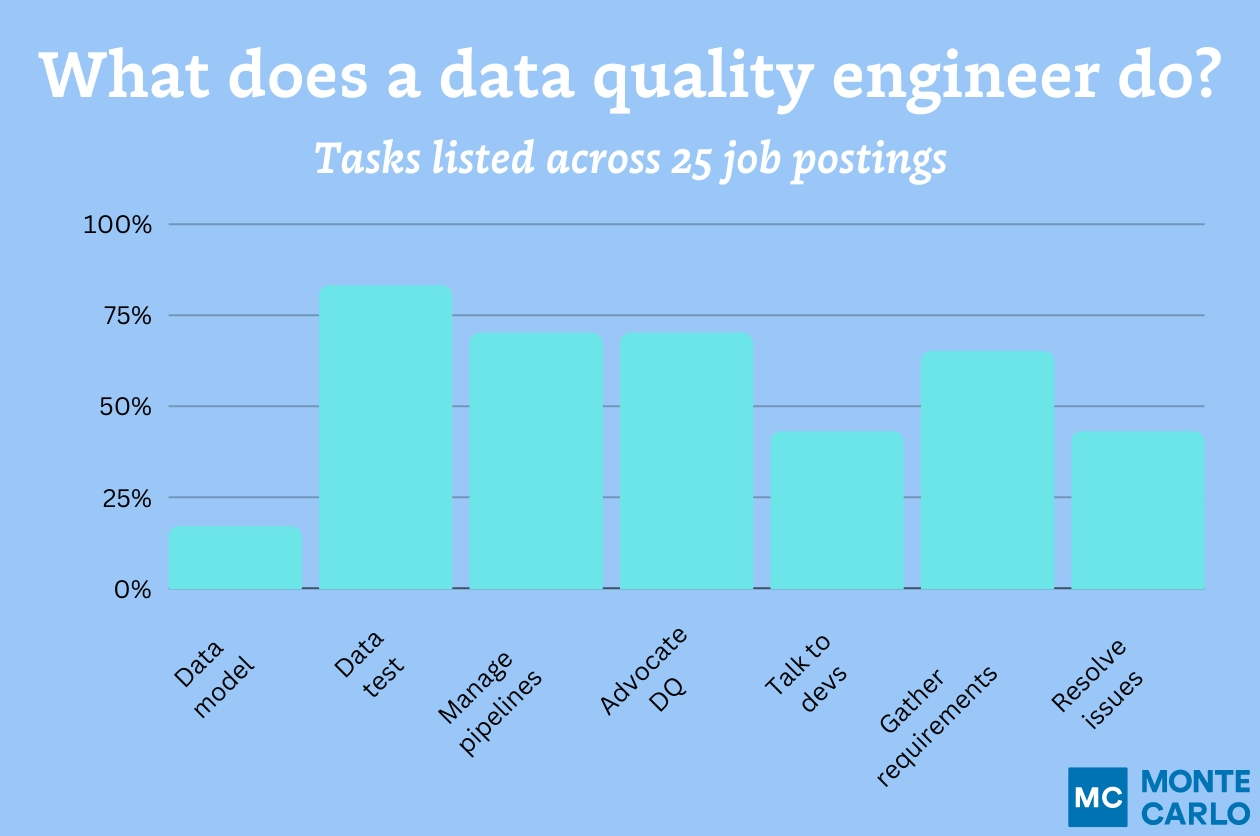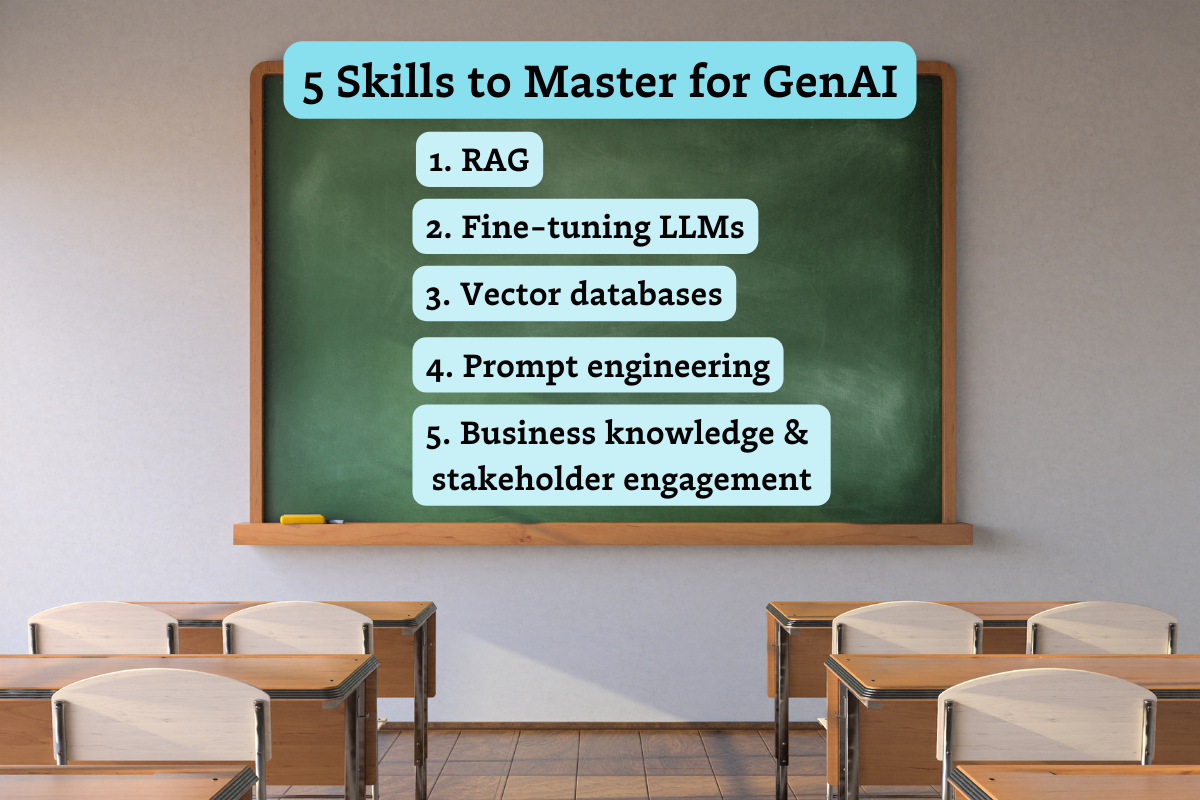What Is A DataOps Engineer? Skills, Salary, & How to Become One

A DataOps engineer is responsible for facilitating the flow of data from source to end user by designing and developing data pipelines as well as optimizing their performance through a mix of specialized tooling and process.
In recent years, we’ve seen all sorts of new job titles emerge that would have been inscrutable a decade ago – cloud architect, data reliability engineer, data product manager, director of hybrid working, and yes, DataOps engineer.
In this article, we’ll talk about what a DataOps engineer is, what they do, how they differ from data scientists and data engineers, what sort of salaries they command, and how individuals might go about pivoting to become a DataOps engineer.
Table of Contents
What does a DataOps engineer do?
In a nutshell, DataOps engineers are responsible not only for designing and building data pipelines, but iterating on them via automation and collaboration as well.
Since DataOps is derived from the DevOps methodology, it’s helpful to understand the latter.
In the late ‘00s and early ‘10s, the merging of development and operations in the tech space led to the creation of DevOps. As the name suggests, a DevOps professional is responsible not only for developing systems but also for securing, scaling, and maintaining them.
The idea is that, because accountability is increased, developers think more critically about their platforms and have greater control over future iteration. And the concept has been widely embraced, with more than 46% of software development teams using it. Where DevOps is a necessary methodology for software engineers, DataOps is a necessary methodology for data engineers.
So, let’s briefly talk about the tenets (and desired outcomes) of DataOps:
- An agile and iterative approach
- Focus on self-service, rather than difficult to manage monolithic data lakes
- Improved collaboration and communication between departments
- Security, compliance, and governance baked into data platforms
- Constant feedback loop, making things better for stakeholders
Clearly, although a technical background is useful (more on that below), an innovative and flexible approach to data is vital for becoming a DataOps engineer.
Is DataOps a good career?
DataOps is a great career to get into, especially today as the data landscape continues to evolve with increasing demand for AI, ML, and generative AI. As GenAI continues to become a central focus for many organizations, DataOps engineers will be crucial to ensuring pipelines are running smoothly and the LLMs can be continually improved.
What is the average salary for a DataOps engineer?
According to Glassdoor, DataOps professionals can expect to earn just shy of $80,000 annually. They do, however, acknowledge an upper rate of more than $125,000, listing several confirmed positions with annual salaries in excess of $100,000 at the time of writing.
Of course, it’s worth pointing out that Glassdoor’s reliance on averages and estimates means that you may encounter significant salary fluctuations when browsing DataOps roles. But these figures are considerably higher than what the site lists for Data Specialists, and around $10,000 higher than the average salary of a Data Manager.
That higher salary is due to the fact that DataOps engineers have more responsibilities than other data roles; in addition to establishing and monitoring a pipeline, you’ll also be analyzing feedback and iterating on future sprints to improve the flow of data.
So, does this mean you should choose DataOps engineering vs. data engineering when considering your next career move? It depends! While a DataOps engineer is primarily focused on ensuring pipelines run smoothly, data engineers are more focused on designing and implementing those pipelines themselves. A DataOps engineer operates on a less granular level, and typically engages in more stakeholder management than a data engineer.
How do DataOps engineers work as part of the data team?
There are a multitude of ways DataOps engineers work with other members of the data team. Former VP of Engineering at Vimeo, Lior Solomon, discussed one way by illustrating how the DataOps team works at Vimeo during the Data Engineering Show podcast.
Vimeo employs more than 35 data engineers across data platform, video analytics, enterprise analytics, BI, and DataOps teams.
In 2021, Vimeo moved from a process involving big complicated ETL pipelines and data warehouse transformations to one focused on data consumer defined schemas and managed self-service analytics.
“The previous set up involved pushing whatever unstructured data you wanted into a homebrew pipeline, and unsurprisingly after 16 years, you started to see thousands of lines of code from all the massaging of the data on the ETLs by the BI team that extract the data, push into Kafka and drop into Snowflake where there is then on top of that ETLs that make sense out of it,” said Lior.
“There were a couple of challenges because it’s easy to break this type of pipeline and an analyst would work for quite a while to find the data he’s looking for.”
The new process is focused on analytics efficiency. It involves a contract with the client sending the data, schema registry, and pipeline owners responsible for fixing any issues. Vimeo’s DataOps team helps analytics teams in the self-service process to keep an eye on the big picture, leverage previous work, and prevent duplication.
How do you become a DataOps engineer?
There’s no single path to becoming a DataOps engineer, since the subject isn’t one that you’d study at school or university. That said, it’s highly likely that most DataOps engineers have a background in software development and/or data science. As such, a degree in IT or computer science is a good first step towards a career in DataOps.
Knowledge of Agile development and DevOps, which we touched on briefly above, is helpful in DataOps, as is knowledge of Python, SQL, or other programming languages. And, of course, experience in data analytics, pipelines, or other forms of data management is vital.
So, how do you learn DataOps? You’ll need to learn and master the following skills/experience to become a successful a DataOps engineer:
- Cloud technology (e.g. AWS, Google Cloud)
- Data platforms (e.g. Azure, Qualtrics, Oracle)
- Unit testing tools (e.g. NUnit, Jest, Emma) and integration frameworks (e.g. Apache Camel, Spring Integration, Mule ESB)
- Managing and implementing projects from beginning to end
- DevOps tools (e.g. Docker, Git, Maven)
- People skills and management experience
Ultimately, DataOps engineering is a management role. That means an ability to look at projects from both a high level and in granular detail, understanding the strengths and weaknesses of those on your team, and a willingness to explain (and sometimes defend!) your approach to superiors and stakeholders.
Top DataOps engineer interview questions
As mentioned above, there’s no direct academic (or career) path to becoming a DataOps engineer. As a new discipline, related technology and best practices are evolving all the time.
Reading up on things like the DataOps Manifesto and looking into relevant courses like IBM’s Professional Certificate in Data Engineering Fundamentals are a good way to get a foot in the door with organizations that embrace the DataOps methodology. And, hopefully, that foot in the door might turn into an interview.
Below we’ve compiled some common interview questions (and some thoughts on how to answer them) relating to DataOps:
Do you have any experience with DataOps?
As we’ve already mentioned, the answer to this question might be no. If that’s the case, you need to find a way to explain how your development, operations, and/or data experience you have could apply to a position as a DataOps engineer.
What is your experience with data analytics?
Ideally, if you want to become a DataOps engineer, you’ll have at least some experience working with data. Name relevant tools that you use regularly, along with how your work history aligns with the principles of the DataOps methodology.
What are some projects you’ve worked on?
Again, look for an angle that demonstrates how your actions on the project fit DataOps tenets.
Why do you want to work for us?
Word to the wise – “because you pay well” is not the answer interviewers want to hear! Something about how the company hiring for DataOps positions in the first place demonstrates a progressive attitude towards data innovation is a better start…
What are some advantages of Agile and DevOps?
An understanding of the concepts behind Agile and DevOps – collaboration, iterative development, working in short-term sprints, customer-centric action, etc. – offers a framework for thinking about DataOps.
What is your expected salary?
See above for advice on salary ranges!
| BONUS INTERVIEW QUESTIONHow would you tackle a data pipeline performance problem? Reliable data starts with your data observability platform. I solve data downtime before it happens with Monte Carlo. |
So, what’s next for DataOps Engineering?
Although the concept has plenty in common with DevOps, which emerged back in the mid ‘00s, the term DataOps has only been around for a few years. That’s why many practitioners are met with “hey, what IS a DataOps engineer?” when they tell people what they do.
It’s also why no distinct paths have yet emerged to become a DataOps engineer; there’s a ton of flexibility around how people end up in DataOps, and they all bring their own point of view on what a DataOps engineer does to the table.
In recent years, we’ve seen rapid growth in companies looking for data professionals to join their ranks. As yet, the title of DataOps engineer remains fairly niche. But we don’t expect it to stay that way for long. In fact, plenty of data scientists and developers are already looking to pivot to this more holistic approach to data.
If you’ve found your way to this post, maybe you’re hoping to be one of them.
Interested in learning more about Data Observability? Schedule a time to speak with us below.
Our promise: we will show you the product.
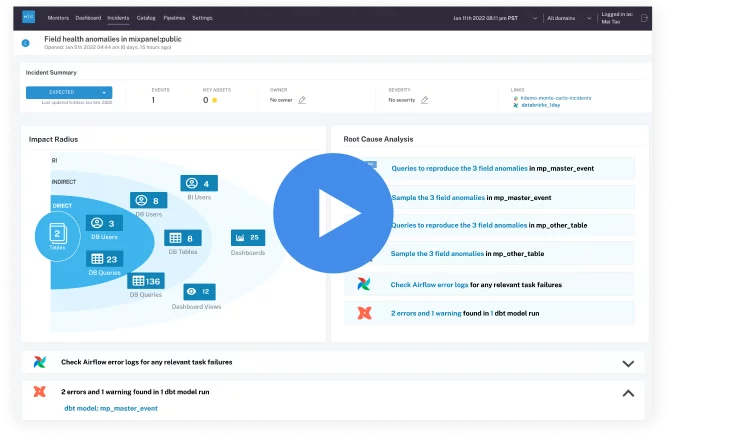 Product demo.
Product demo.  3 Steps to AI-Ready Data
3 Steps to AI-Ready Data 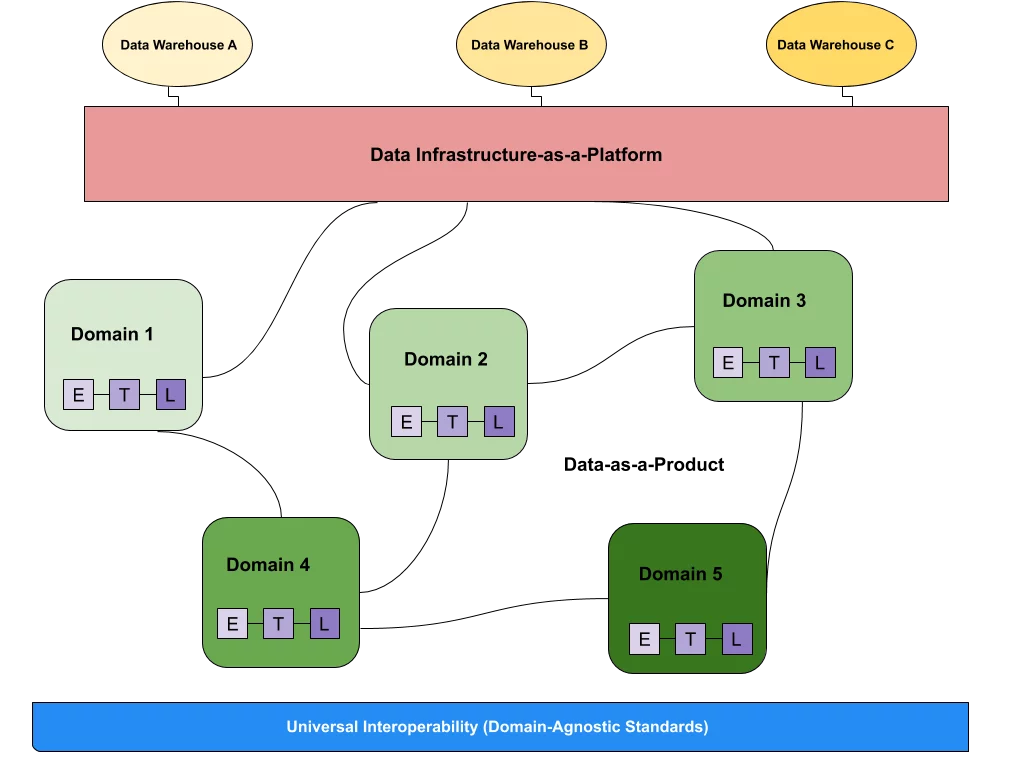 What is a data mesh--and how not to mesh it up
What is a data mesh--and how not to mesh it up 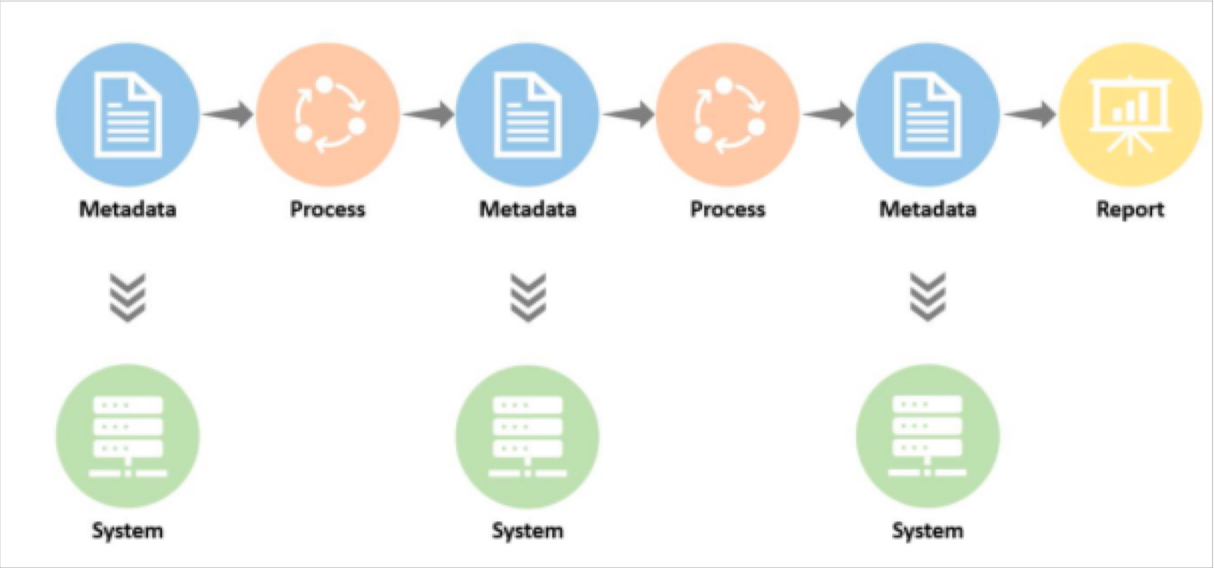 The ULTIMATE Guide To Data Lineage
The ULTIMATE Guide To Data Lineage 
